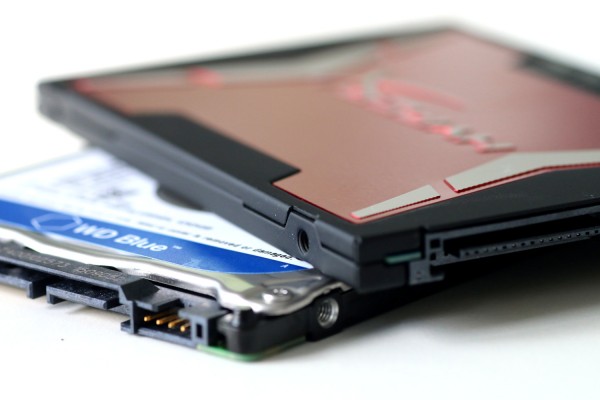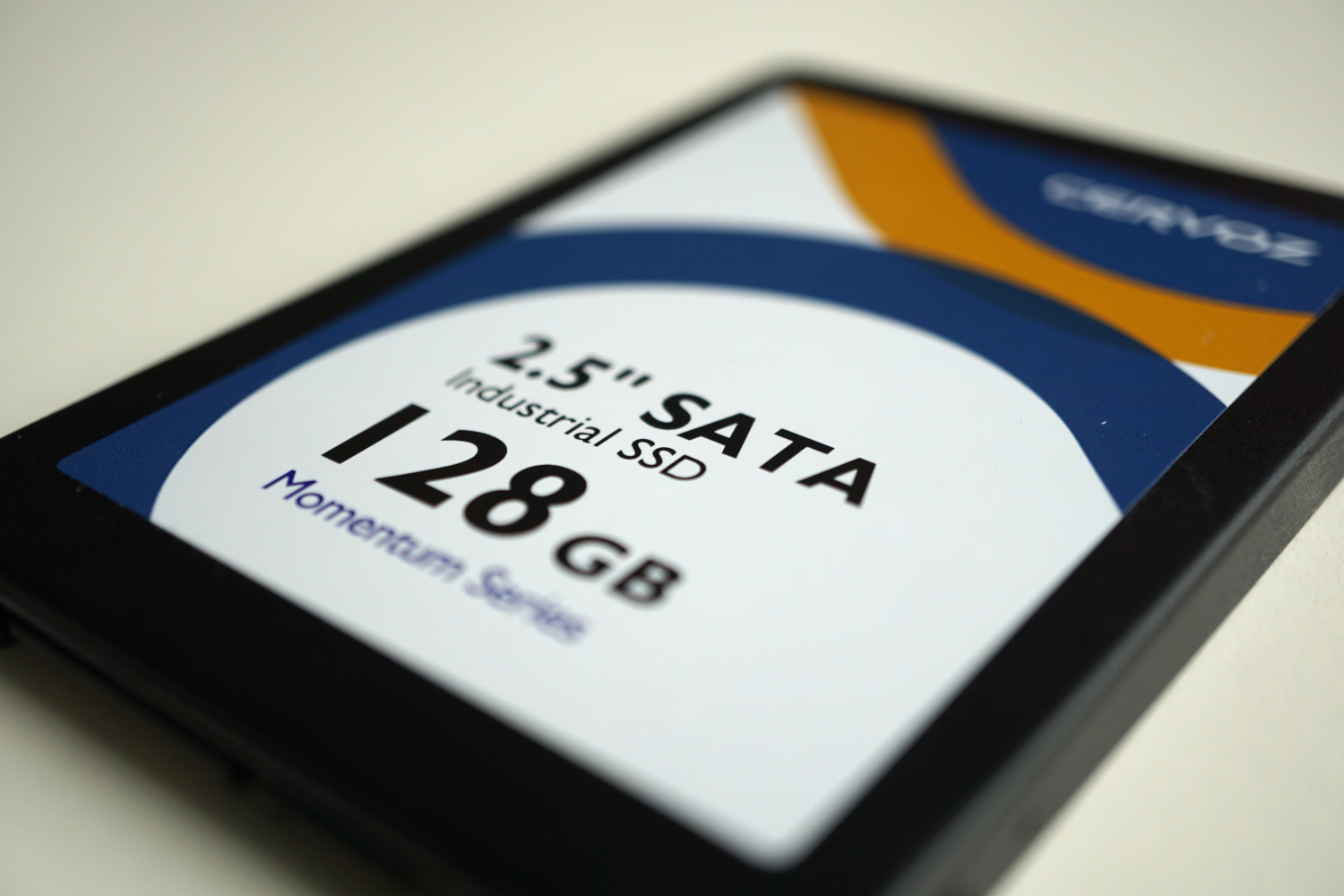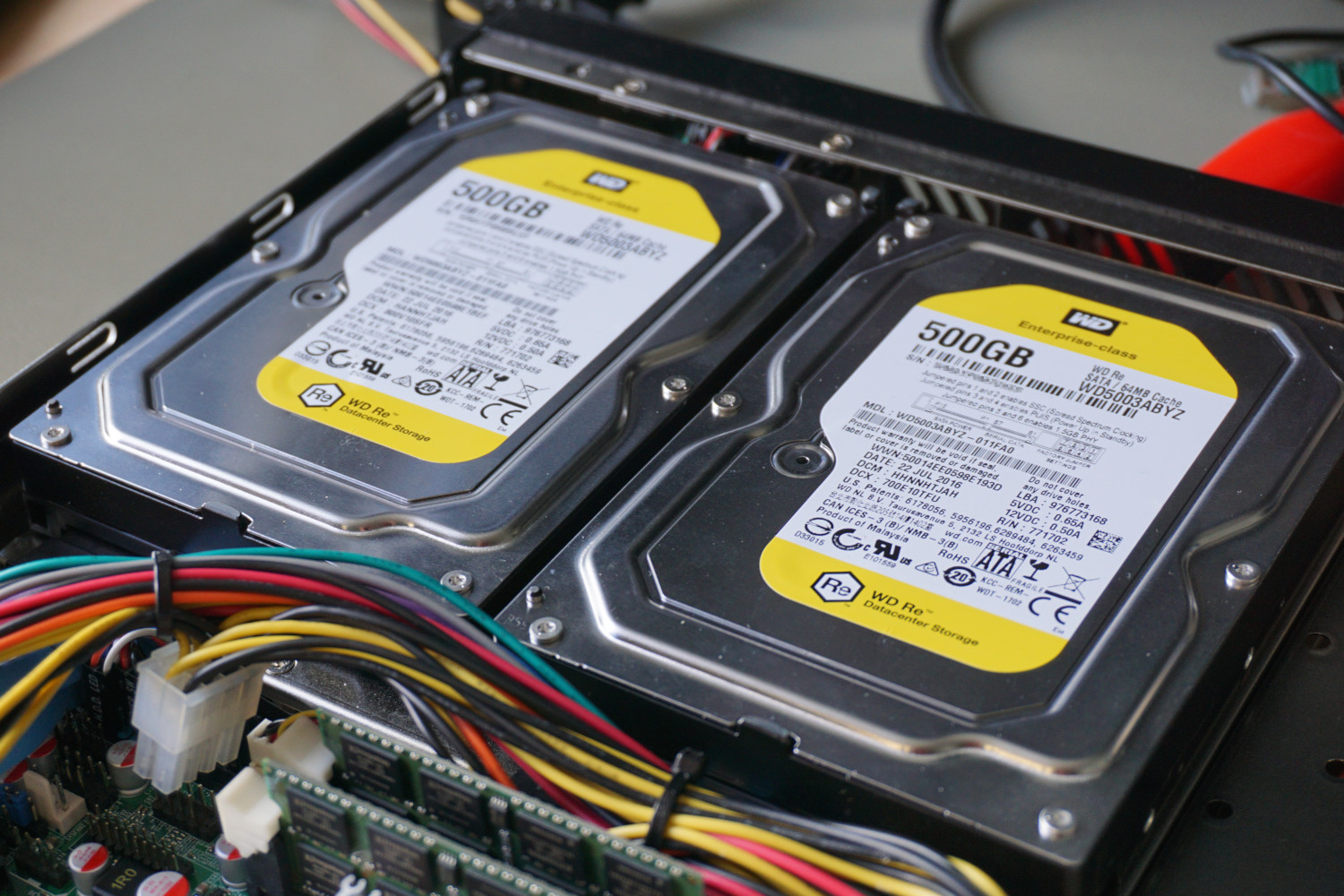What means HDD?
The term HDD stands for “hard disk drive”. For simplicity it is often referred to as a hard drive. An HDD is composed of many mechanical parts. In the storage process, the data is written on the surface of one or more rotating magnetic platters. Therefore a reading head is moving – similar to a record player – back and forth.
Hard drives have been around since the 50s and are until today often installed by default as a storage medium in PCs. With the emergence of the SSD this has changed. These were in the early days extremely expensive and were only used for very specific applications. Anyway they have now become much more affordable and due to their advantages are increasingly used even at home.
What is an SSD?
The term SSD stands for "Solid State Disk" or "Solid State Drive", which can also be described as a semiconductor memory. An SSD is not mechanical but an electronic memory. Unlike the rotating platters from the HDD you can imagine the SSD like an USB flash drive.
Which advantages can I expect from an SSD?
The probably biggest advantage is that an SSD boots and works much faster because it runs electronically and does not constantly have to move a reading head back and forth. Although it is faster, the SSD has much lower energy consumption than a conventional hard drive. Who wants his PC to run completely silent and therefore chooses a passive cooled system, should also decide for an SSD. Thanks to the absence of moving parts it works without a sound.
But there’s more to come: It is also much more robust, as the mechanical drives of an HDD break a lot easier if dropped. Likewise it also stands an extended temperature range. Thanks to its ruggedness the SSD is still running, even under concussions or vibration. Hard drives often have the protection mechanism to stop working as soon as the running PC is moved. For instance this could be the case if a laptop is carried around or if a PC is installed in a vehicle, like our MOVE-series. To prevent the reading head from striking the platter, the HDD stops its operation cautionary. With an SSD this cannot happen. Since it has no moving parts, it works without problems even in rough circumstances.









